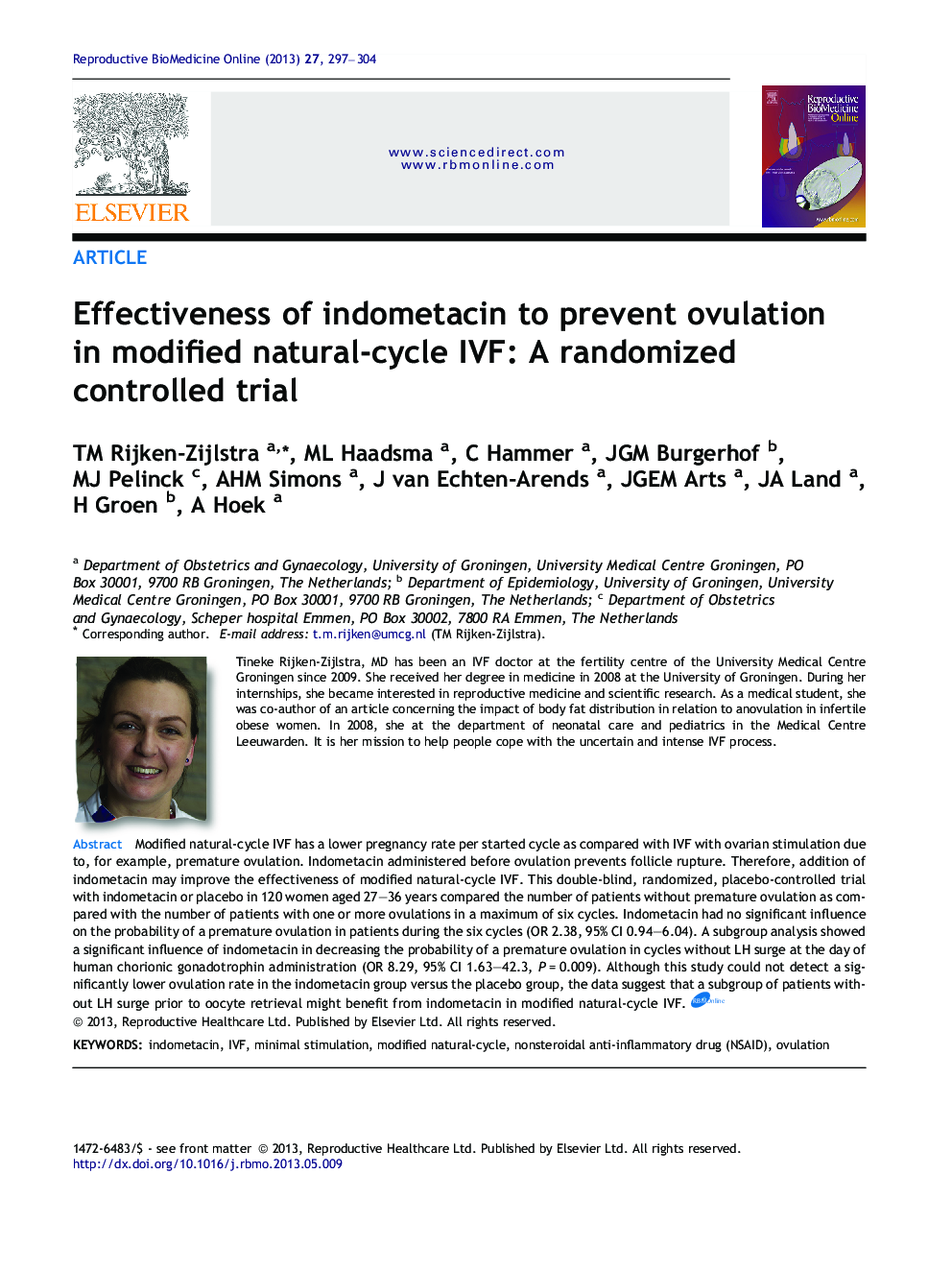| Article ID | Journal | Published Year | Pages | File Type |
|---|---|---|---|---|
| 3970572 | Reproductive BioMedicine Online | 2013 | 8 Pages |
Modified natural-cycle IVF has a lower pregnancy rate per started cycle as compared with IVF with ovarian stimulation due to, for example, premature ovulation. Indometacin administered before ovulation prevents follicle rupture. Therefore, addition of indometacin may improve the effectiveness of modified natural-cycle IVF. This double-blind, randomized, placebo-controlled trial with indometacin or placebo in 120 women aged 27–36 years compared the number of patients without premature ovulation as compared with the number of patients with one or more ovulations in a maximum of six cycles. Indometacin had no significant influence on the probability of a premature ovulation in patients during the six cycles (OR 2.38, 95% CI 0.94–6.04). A subgroup analysis showed a significant influence of indometacin in decreasing the probability of a premature ovulation in cycles without LH surge at the day of human chorionic gonadotrophin administration (OR 8.29, 95% CI 1.63–42.3, P = 0.009). Although this study could not detect a significantly lower ovulation rate in the indometacin group versus the placebo group, the data suggest that a subgroup of patients without LH surge prior to oocyte retrieval might benefit from indometacin in modified natural-cycle IVF.Modified natural-cycle IVF is a mild form of IVF, with a lower pregnancy rate per started cycle as compared with IVF with ovarian stimulation because of several unfavourable cycle events, such as ovulation before oocyte retrieval. Indometacin is a cheap drug, commonly used to reduce fever, pain and swelling caused by inflammation. It has been shown that indometacin administered before ovulation prevents this from happening. Therefore, it has been suggested that indometacin may improve the effectiveness of modified natural-cycle IVF. In this study, we assigned 120 women aged 27–36 years randomly to an indometacin group (60 women) and a group of women who used placebo (also 60 women). We evaluated whether indometacin could indeed prevent ovulation during a maximum of six modified natural-cycle IVF cycles. When we compared the two groups of women, indometacin did not seem to prevent ovulation compared with women who used placebo. Within these groups, however, the patients with a low level of LH (a hormone involved in ovulation) on the day that administration indometacin or placebo was started, indometacin did decrease the chance of an untimely ovulation. So although we could not detect a lower ovulation rate in the indometacin group versus the placebo group, our data suggest that a subgroup of patients with low LH concentrations prior to oocyte retrieval might benefit from indometacin in modified natural-cycle IVF.
